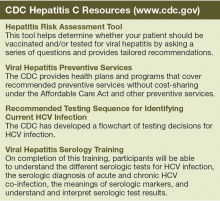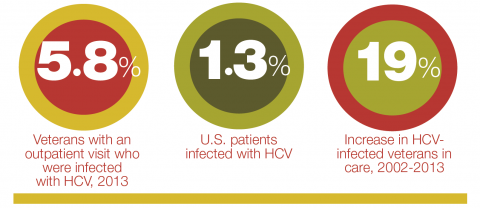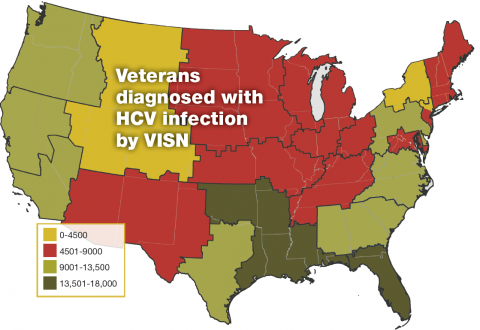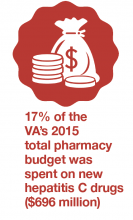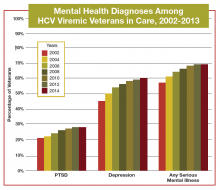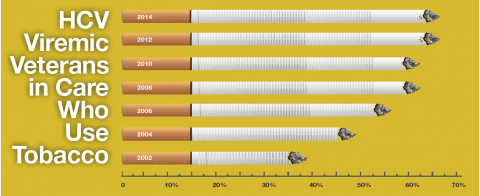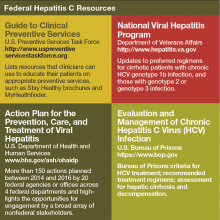Chronic hepatitis C virus (HCV) infection is the most common blood-borne infection in the VA. The VA has treated more than 76,000 veterans infected with HCV and cured about 60,000, but screening and treatment remain a challenge as the problem continues to grow. Backed by increased funding from Congress, the VA recently announced that it would cover HCV treatment for all veterans with the new generation of direct acting antiviral drugs.
Currently, about 180,000 veterans are infected with HCV. In fiscal year (FY) 2015, VA set aside $696 million for HCV treatment. In FY 2016, HCV spending is expected to balloon even further to about $1 billion.Unfortunately, many veterans infected with HCV also experience comorbid conditions that can complicate treatment plans. Substance abuse, such as alcoholism, is a particular concern due to its tendency to hasten the progression of liver disease, and IV drug use raises the risk of reinfection. The VA examined trends among veterans with HCV infection and found rates of substance use far exceeded U.S. averages. For
example, > 50% of veterans with HCV infection reported using alcohol, and about 20% used opioids in 2013. Mental health also is a concern. In 2013, 60% of veterans with an HCV infection reported that they had received a depression diagnosis, while nearly 30% experienced posttraumatic stress disorder. These conditions require treatment alongside the HCV infection.
